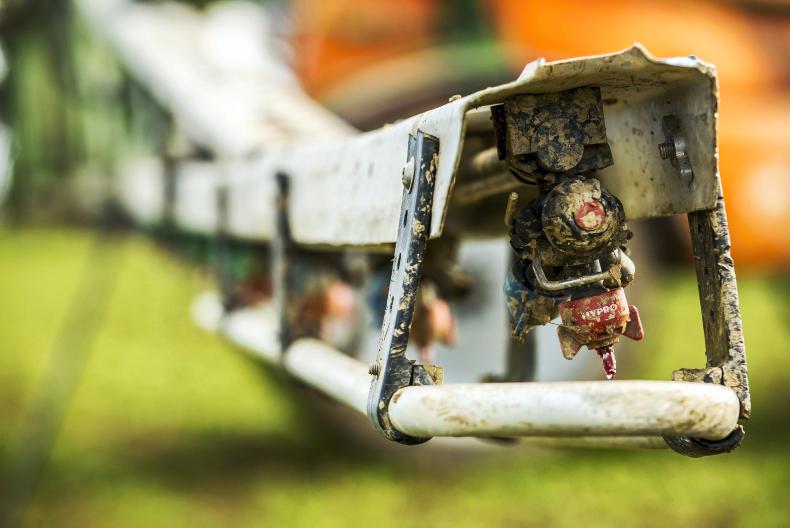The European Parliament voted for a reduction in the use of pesticides and called for the development of safer, biological controls in their place.
MEPs fell short of voting for a proposal to reduce the use of pesticides by 50%. Instead they called for sustainable biological, physical and other non-chemical methods to be used, if they provided satisfactory control.
During the parliament sitting in Strasbourg on Tuesday, a vote was also passed in favour of developing a fast-track procedure to get low-risk pesticides onto the market.
It comes following a scientific review published in the journal of Biological Conservation, which stated 40% of insect species were declining and a third were endangered.
Implementation
Speaking after the vote, Mairead McGuinness MEP said EU rules laid down in the directive on the sustainable use of pesticides must be better implemented.
“While there are many reasons for the loss of insects, the report points to intensive agriculture as the main reason for the declines, particularly the use of pesticides,” McGuinness said.
"Member states differ significantly in how they implement the directive in the design and quality of National Action Plans and in the implementation of Integrated Pest Management (IPM) measures,” the MEP said.
The parliament called on member states to fully prepare NAPs which include objectives, targets, measurements and timetables for various actions to reduce agrochemical use.
IPM was highlighted as an area where there should be renewed emphasis.
Pest management
McGuinness said: "IPM is the corner stone of this directive and it seeks to use a broad range of pest management techniques and tools, including physical and biological, with the use of agrochemicals as a last resort.
"IPM, including crop rotation, nutrient management planning, cultivation techniques such as conservation tillage etc can provide for effective pest control and so reduce the need for pesticides.”
There were also calls for the European Commission to ensure the directive is implemented and that infringement proceedings are taken against member states found to be failing on implementation.
Read more
More green conditions in next CAP
Transparency in pesticide approval process set to increase
The European Parliament voted for a reduction in the use of pesticides and called for the development of safer, biological controls in their place.
MEPs fell short of voting for a proposal to reduce the use of pesticides by 50%. Instead they called for sustainable biological, physical and other non-chemical methods to be used, if they provided satisfactory control.
During the parliament sitting in Strasbourg on Tuesday, a vote was also passed in favour of developing a fast-track procedure to get low-risk pesticides onto the market.
It comes following a scientific review published in the journal of Biological Conservation, which stated 40% of insect species were declining and a third were endangered.
Implementation
Speaking after the vote, Mairead McGuinness MEP said EU rules laid down in the directive on the sustainable use of pesticides must be better implemented.
“While there are many reasons for the loss of insects, the report points to intensive agriculture as the main reason for the declines, particularly the use of pesticides,” McGuinness said.
"Member states differ significantly in how they implement the directive in the design and quality of National Action Plans and in the implementation of Integrated Pest Management (IPM) measures,” the MEP said.
The parliament called on member states to fully prepare NAPs which include objectives, targets, measurements and timetables for various actions to reduce agrochemical use.
IPM was highlighted as an area where there should be renewed emphasis.
Pest management
McGuinness said: "IPM is the corner stone of this directive and it seeks to use a broad range of pest management techniques and tools, including physical and biological, with the use of agrochemicals as a last resort.
"IPM, including crop rotation, nutrient management planning, cultivation techniques such as conservation tillage etc can provide for effective pest control and so reduce the need for pesticides.”
There were also calls for the European Commission to ensure the directive is implemented and that infringement proceedings are taken against member states found to be failing on implementation.
Read more
More green conditions in next CAP
Transparency in pesticide approval process set to increase










SHARING OPTIONS